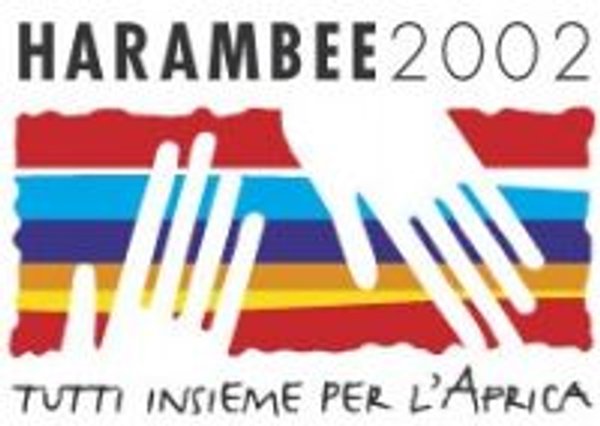An Evening of Celebration and Thanksgiving for Africa
“Every canonization is a gift, a cause of joy that inspires gratitude. As an expression of these feelings, Project Harambee 2002 was born : small contributions from the people participating in the canonization for educational projects in Africa.” This was how Umberto Farri, President of the Organizing Committee of the Canonization, described the event that brought together some 2000 people at the Auditorium of St. Cecilia in Rome on the evening of October 4, 2002. Among those present were the Mayor of Rome, Walter Veltroni, and the Honorary President of Project Harambee 2002, Her Excellence, Mama Ngina Kenyatta, widow of Jomo Kenyatta, first President of Kenya.
The event consisted of a musical recital with choirs from different countries. Interspersed between the musical items were various personal testimonies and short film presentations featuring the voice of the new saint. Among the presentations that drew the most applause were a choir from Abidjan, Ivory Coast, and the group "Pinoy Ritmo" from the Philippines. Another song that received a warm ovation was “Lailatal Milad”, a traditional song of peace that describes how the message of the Incarnation of the Son of God can be lived daily and which was sung by 2 Arabic girls, Rose Barghouht from Nazareth and Ayline Kidess of Tel Aviv-Haifa.

Margaret Ogola, doctor and writer from Nairobi, Kenya, explained what the word harambee meant in Swahili: “All for one,” whether it is to resolve a problem, to construct a house or to help those who find themselves in need. Each one offers what he has, though in reality, all give and all receive. “Africans are called to be the protagonists of their development. Africa will go forward, in the first place, with the help of the Africans themselves, and then with that of so many other persons throughout the world. Hence, we have thought of Project Harambee 2002 on the occasion of the feast of Josemaria Escriva, who made himself African for the Africans, and who was teacher and educator of women and men of all races and color.”
“Education is the key to development,” declared Dr. Leon Tshilolo, health director of a hospital in Kinshasa, Democratic Republic of Congo. “We decided that all the funds raised with Harambee 2002 will go to finance educational projects throughout all of Africa. We will distribute them after selecting the applications. The application criteria will be made known to the public on the internet, and will be open to all African organizations that work in the field of education, with special attention given to the promotion of the woman.”

“I am a lawyer and I work especially to defend the rights of women in my country Nigeria,” said Anayo Offiah. “Women often do not have the same opportunities men have, but they are the ones with more responsibilities.”
Frankie Gikandi and Peris Wanjiku Kamau work with Outreach Program, an initiative of Kimlea School (Kenya), the Harambee 2002 pilot project. They talked about the life of women who collect tea and coffee at the plantations in the area where the school is situated. They also talked about how reading the works of Josemaria Escriva has given them a positive view of life and the desire to help improve the conditions of the families that live near the plantations.
“We are all responsible for our future,” said Leon Tshilolo. “But I would especially like to thank one person who has reminded us with words and even before that with actions to freely give what we have freely received. I am referring to John Paul II, who we in Africa always consider as close to our problems and our work.”
To end the evening, Mama Ngina Kenyatta expressed warm and moving words of gratitude to the audience in Swahili, translated by her daughter. After this, all the performers in the event returned to the stage to sing Harambee, all together. Again, all for one, from Japan to Mexico, from Great Britain to Indonesia, to the beat of the African rhythm and dances.
Project Harambee 2002 has generated enthusiasm and participation of people from all over the world. The first to contribute to the support of this solidarity fund for educational projects in Africa was IntesaBci, a leader among the companies that have already given generous donations.
